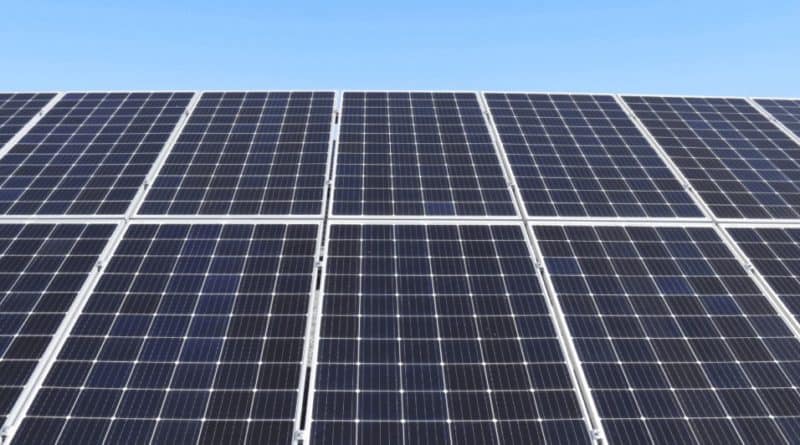Solar Panels: Which to Choose & How to Install
So you’re considering getting solar panels installed? You’ve likely seen them around, gotten over the myth that energy from the sun can’t be absorbed in the UK, and have a few more questions that need answering. What kind of solar panel should you choose, for example? How do you go about getting it installed? How much do solar panels cost? Find out everything you need to know below.
How to choose a solar panel
The first thing you need to know about solar panels is that there are different types. There are three kinds that you’ll most likely want to consider. These are:
- Monocrystalline solar panels
- Polycrystalline solar panels
- Thin-film solar panels
In all likelihood, unless you’ve delved into the world of solar energy and panels before, this is the first time you’re hearing these terms and you can make neither head nor tail of them. The most basic differences between these types of panels is their efficiency, and, as you might be able to guess, high efficiency leads to more expense. We’ve set it out for you in a table:
| Type of panel | Efficiency | Cost |
| Monocrystalline | High (20%+) | $$$ |
| Polycrystalline | Medium (15-17%) | $$ |
| Thin-film | Low (11%) | $ |
Put simply, ideally you want monocrystalline solar panels if you’re buying for your home. Their cells are made with just the one crystal of silicon instead of the many silicon fragments melted together you’ll find in polycrystalline panels, which is what makes them more efficient.
Monocrystalline panels also produce a higher wattage of electricity, most having a power capacity of over 300W and some over 400W. This is another reason that the best, most popular panels on the market tend to be monocrystalline ones.
Another factor in choosing a solar panel is its temperature coefficient. Its temperature coefficient is a measure of how much a panel’s production is lowered in hot temperatures. This will vary depending on the manufacturer as much as the type of panel, though monocrystalline panels tend to be better in this regard as well.
Don’t overlook a panel’s “temperature coefficient”
It’s important to stress that cost and effectiveness are not the only considerations. Many businesses choose thin-film panels because, as their name suggests, they offer a lightweight alternative that suits thin commercial roofs that aren’t strong enough for other types of panel. This also makes for cheaper installation, as they are easier for installers to carry and secure.
How much do solar panels cost?
Perhaps you’re not much for the technical stuff – you’re interested in getting a solar panel installed; you want to know which brands are the best and how much they cost.
A household with three inhabitants generally needs a system producing around 3kW of energy, which means installing around 12 panels occupying around 21㎡of roof space. This costs an average of £4,686, according to official UK government statistics, but of course depends on the type of panel and the brand you choose.
Here’s a list of the most popular manufacturers on the UK solar panel market:
- Panasonic
- LG
- Hyundai
- Sharp
- Sanyo
- SunPower
- Solarworld
There are some familiar brands here, and your instinct to trust the most familiar ones will not necessarily be misplaced, though you’ll have to pay for the privilege. Below, you’ll find a quick rundown of how much you can expect to pay per panel for the biggest brands and their models. Incidentally, these are mostly monocrystalline panels.
| Make/model | Energy output | Energy coefficient | Cost / panel (est.) |
| Panasonic (all models) | 250W-330W | -0.26 | £275-£350 |
| LG (all models) | 320W-395W | -0.30 | £185-£500 |
| Sharp (avg) | 180W | -0.485 | £288 |
| SunPower SPR 90 | 90W | -0.29 | £332 |
| SunPower SPR 130 | 135W | -0.29 | £479 |
You’ll notice there’s quite a lot of variation, and not necessarily in accordance with the energy output you’re getting, so it’s important you pick the right one. It’s a big investment, particularly when you consider you’ll probably have to buy a dozen or more of them, and installation costs can ramp the price up even further.
Though it is a big investment, it’s definitely one worth considering based on the savings you can make in the long term – most of these panels come with a 25-year warranty, over which time they can reduce your energy bills by 50% or more and save you tens of thousands of pounds. It can also be to your benefit to research grant information, as more grants for energy-efficient upgrades are appearing as governments work toward Net-Zero targets.
How to choose a solar panel installer
Installation is a crucial part of the process of acquiring a solar panel, so it’s important you make the right choice in terms of the installer so that you get it done right. Here’s a list of things to consider before you settle on it:
- MCS accreditation, or equivalent
- Installation experience
- Customer reviews
- Insurance
- Product and workmanship warranties
- Cost
Handy Hint: What is MCS accreditation?
MCS stands for the Microgeneration Certification Scheme, which is an internationally recognised quality assurance scheme supported by the Department for Business, Energy & Industrial Strategy (BEIS). If your installer is accredited by the scheme, you can be reasonably sure its service is up to standard.
As with any tradesperson, it’s important to hire an installer with experience and which leaves a trail of satisfied customers in its wake. It’s also a tricky process which involves heavy materials, so it’s important to acknowledge that things can potentially go wrong and contract an installer with the appropriate insurance and warranties in place.
We would also suggest not simply looking at a few individual installers and doing your own comparison but using a couple of comparison sites, of which there are several online, and which will set out the above information plainly along with the price.
Most installers will include the price of installation itself with the price of the panels, leaving it unclear how much you’re actually paying them for labour. Bear in mind that, depending on the panels you choose, a house with up to 4 inhabitants could pay anything between £5,000 to £8,000 with installation included. Anything more than this should cause you to think twice.
Click here for more stories and others like this.



